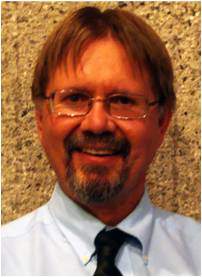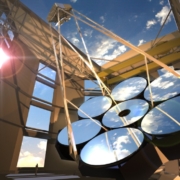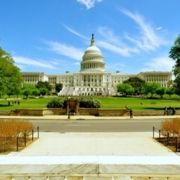Rescuing Obama from the Slippery Slope
by Brian Czech
 One year ago this week I wrote that Barack Obama had finally done it. He had taken the tantalizing trail to a notoriously slippery slope. In an op-ed for the Wall Street Journal, he promised, “federal agencies (will) ensure that regulations protect our safety, health and environment while promoting economic growth.” In other words, we would have our environmental cake and eat it too, for the sake of economic growth.
One year ago this week I wrote that Barack Obama had finally done it. He had taken the tantalizing trail to a notoriously slippery slope. In an op-ed for the Wall Street Journal, he promised, “federal agencies (will) ensure that regulations protect our safety, health and environment while promoting economic growth.” In other words, we would have our environmental cake and eat it too, for the sake of economic growth.
For some time after the op-ed, Obama did little to promulgate this win-win rhetoric, and those of us who prefer the truth, the whole truth, and nothing but the truth regained some hope. Economic growth is a serious topic, and so is environmental protection. We’d like Obama to come clean and tell it like it is: There is a fundamental trade-off between economic growth and environmental protection.
Maybe the truth about economic growth and environmental protection doesn’t make for an easier choice between the two, but what kind of a choice can be borne of a lie?
Now it’s fairly reasonable for Obama to say, as he did last month in a speech to EPA employees, that “Safeguarding our environment is also about strengthening the economy.” There is no doubt that safeguarding our environment protects the strength of the economy. But Obama’s exact wording is a stretch because strengthening usually connotes growing the economy. That cannot be done while truly safeguarding the environment. Economic growth — increasing production and consumption of goods and services in the aggregate — does and must have a growing environmental impact. That’s Ecological Economics 101.
Obama fell further down the slippery slope with “I do not buy the notion that we have to make a choice between having clean air and clean water and growing this economy in a robust way. I think that is a false debate.” But I don’t buy the notion that Obama is that oblivious to the truth. Surely he knows our skies, rivers and oceans gradually fill with the byproducts of production and consumption. But as with all politicians, he also knows that the average voter doesn’t detect the dulling of the skies or the graying of the waters during the course of one electoral cycle. So he hunkers down on the slippery slope, content in avoiding the attention of a really inconvenient truth.
Once in awhile, though, a spotlight shines on the slope, such as in Sunday’s Washington Post article by Juliet Eilperin, “Obama administration slows environmental rules as it weighs political cost.” Rules aimed at curbing auto emissions are on hold, as is a proposal to regulate soot, because of the toll these and other environmental protections would take from the rate of economic growth. In other words, the administration knows darn-tootin’ well that bona fide environmental “safeguarding” can’t be reconciled with economic growth. They also suspect that the political cost of prioritizing environmental protection over economic growth at this point in history is more than they are willing to pay.
Maybe it wouldn’t be so bad, this prioritizing of economic growth over environmental protection in a world of endangered species, oil spills, and climate change, if only presidents who model themselves after Ol’ Abe Lincoln were at least forthright about the trade-off between economic growth and environmental protection. Why can’t Obama just come out and say, “I realize that the #1 concern among Americans today is jobs. That’s why I’m doing all I can to help grow the economy. And I’ll continue to do this, as long as we realize that growing the economy does have a growing impact on the environment too. So while we’re growing the economy today, we must turn some of our attention to how we can transition tomorrow to a stable economy, or what they call a ‘steady state economy.’ That’s the vision of the future, and the sooner we explore it, the more prepared we’ll be.” Or something like that? At least then we could respect him for telling the truth on economic growth and environmental protection.
Would that really get him unelected? Who says? How do they know?
But the truth-telling onus is not entirely on Obama. Frankly, I think we should be far more disappointed with the many “environmental” organizations and agencies who themselves pollute the internet and airwaves with the win-win wimpsmanship. They’re the ones who could empower Obama to tell it like it is without being so worried about political consequences. As it is now, it’s hard to blame Obama for fearing the role of Lone Ranger in a wilderness of intellectual laziness.
It’s too late in this article to elaborate on these organizations and what their problems are, but count on it for another day in the Daly News.








Hi Brian,
No growth means declining capital accumulation rate and declining profit rate. I’m sure you will agree that capitalism cannot survive in this environment.
Having that in mind, do you expect Obama to come up with a new economic order? And what would that be?
Cheers,
Chris.
Chris, I can certainly agree that capitalists have it much easier with all the policy levers set for GDP growth, and that many would fail in a steady state economy. As for whether that means the death knell for capitalism, it’s not hard to conceive of a very mixed economy – such as the American – with winners and losers playing out in a steady state. But I’m concerned more with putting the horse (steady state economy as economic goal) before the cart (system of political economy). I think most constitutional governments can adjust to the exigencies of steady state economics. I think the American constitution, for example, is more conducive to steady statesmanship than a centrally planning politburo.
“Wimpsmanship”. Gotta love it…
Hi Brian,
Political systems and constitutions are a consequence and not agents of the economic system. Certainly, socialism is not the answer, but you wont move your horse before you are able to address the issue that immediately arises when you propose a steady state economy.
Brian, capitalism cannot survive in a steady state economy. That is not a wish, it’s a fact based on a plain and rational economics analysis. Or, do you think it can survive in a world of declining rates of capital accumulation and profit?
Cheers,
Chris.
Chris,
Ultimatly the economic steady state model that develops in the post growth era will be set by the physics chemistry and biology of a of a closed planet system.
Questions of capital and profit will require some careful definitions to tie them to our planet reality.
The present system of resource exploitation yields “easy” monetary profits if the inherent monetary value of the resource is assumed to be zero.
The idea of profit itself might be examined.
Are all profits equal?
Suppose that I sail around the world in a wooden ship and “purchase” a large tract of land from the “owners ” for some hatchets beads and blankets.
Is this “profit ” the same as that made by the surgical team who place a stent into my blocked coronary artery and save my life?
Much of our globalized world trade depends on buying goods from a “poor “country with low wages and selling them to a “rich ” country with high wages who can no longer afford to make the same goods.
It looks like “pipeline”trade of money flows from high to low areas of wealth.
Eventually the flow will stop as the standard of living equalises.
Unfortunately this equalization will be curtailed by environmental limits.
It seems to me that capitalism is too broad a term to describe all of the free trade processes ranging from the exploitative to the altruistic.
Perhaps the steady state economy will define “profit ” more in terms of social wellbeing and human development and less in terms of arbitary units of money tokens.
We need all of our brains to make the transition from here to there.
As to Obama and the “slippery slope” , politics is after all the art of the possible.
I doubt that any politician could survive the forces of the vested interests in the status quo.
Christopher writes:
“Or, do you think it (capitalism) can survive in a world of declining rates of capital accumulation and profit?”
You invoke a false dichotomy. If the choice is truly between what you financially fear, and an increasingly deteriorating climate leading to mass species extinction and the possible destruction of our civilisation, then it would be highly irresponsible, almost psychopathic, to deliberately choose the former. It also could not work anyway.
Current capitalism depends upon maintaining exponential growth rates to pay back the debts incurred in financing the expansion of the economy in a vicious circle, that the mathematical laws of the universe say, will inevitably consume the foundations of the systems that support it.
The whole point of a steady state economy, that sites like this argue for, is it achieves wealth generation without endlessly growing unsustainable demands for more materials, goods, energy and resources. Economic development is welcomed, economic growth is just something we did while our civilisation was young. We have reached full size now and growing larger in future can only be uneconomic growth.
As Einstein said: “We cannot solve our problems with the same thinking we used when we created them”
Simplistic clinging to the tenets of business-as-we-have-known-it simply will not do
“to deliberately choose the former”
Apologies – the choice I refer to above is between maintaining conventional capitalism, that depends on unending exponential growth, or doing the things that are necessary to avoid the certain and very unpleasant consequences of such simplistic growth